Why is beauty so important?
It leads us to truth and goodness, says Immanuel Kant.
How?
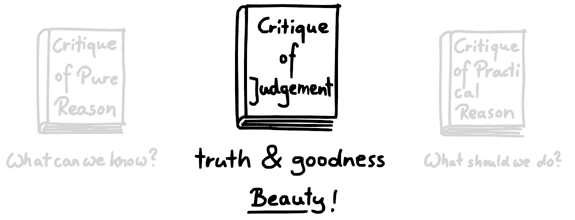
Beauty
To uncover the secret of beauty, let us first examine how we usually view the world.
This is what happens when we see something:
1. Our senses receive a lot of raw data from the outside world.
2. Our mind tries to structure and make sense of it.
Or to put it in Kant’s technical terms: The perceptions from outside are structured by our concepts inside.

If everything goes well, our mind can match these perceptions with a concept. We see a bunch of shapes and colours and conclude: That is a tree!

This is how we understand the world. Our mind groups perceptions under concepts.
These concepts are fairly simple and easy to deal with. Once we have understood that this thing is a “tree” we can avoid bumping into it—and go on with our lives.

We constantly seek this kind of closure. We want to know what is going on around us.
But sometimes this doesn’t work out.
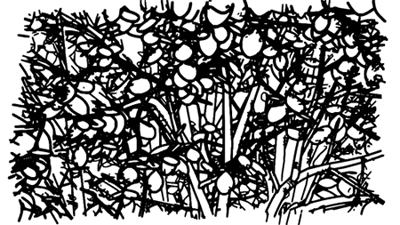
When we stand in front of an old tree for example, we sense that there is more than just a “tree”. We see the ancient bark of the colossal trunk, the crooked shape of those mighty branches, the flickering light in the radiant green of the leaves. And we do not understand it all—but we find it beautiful.
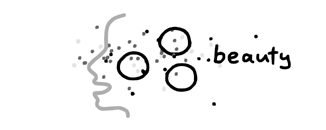
Our mind struggles to reduce this spectacle to a simple concept. “Tree” doesn’t seem to cut it. We are literally at a loss for words. Kant calls this a harmonious play, a dance of our senses with our understanding.
And this dance gives us pleasure. Our rational business of understanding is pushed aside by emotions. However, Kant does not clarify why we perceive beauty as pleasant, he merely gives us hints:
When we look at a twig for example, then its structure does not appear to be chaotic or random.
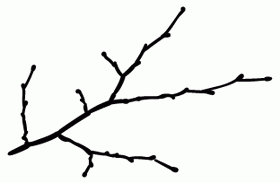
We sense that there might be a purpose behind its shape. Now we could take the next step and use scientific methods to explore, whether there actually is some purpose.
But we don’t have to.
Kant uses the word “purposefulness” when we are unable to understand the purpose of something but assume some underlying reason. So when we are confronted with beauty, maybe we are just pleased to feel at home in a world that somehow seems to follow some higher order—even if we don’t understand it.
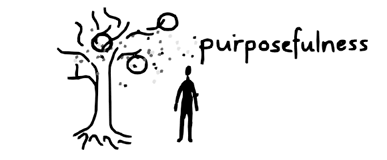
And we can share this delight with other people. Kant says that our appreciation for beauty is universal, and good taste can connect us.
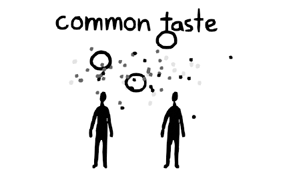
But maybe beauty is simply a relief from mundane rational thinking. We can free ourselves from our rigid ways of thinking and enjoy the playful dance of our mind with the world around us.

For now, let’s note that beauty is connected to perception and a frustration of rational understanding. This failure to know initiates the pleasant sense of beauty.
But there is more! Beauty has a strange sibling:
The Sublime
When it’s too much
Standing on the edge of the Grand Canyon for the first time, I was shocked, terrified, thrilled, exhilarated, speechless. And I wasn’t alone. Some people just stood there in awe, some even close to tears. Others tried to cope by manically taking pictures–in a helpless attempt to tame this massive abyss by squeezing it into a tiny camera. Kant had a word for this kind of experience: the sublime.

He said that in theory we can handle huge numbers and sizes. We can do all sorts of calculations with them, but we can not imagine them. We can think them but not grasp them. At some point every large quantity just collapses into “infinitely large”.
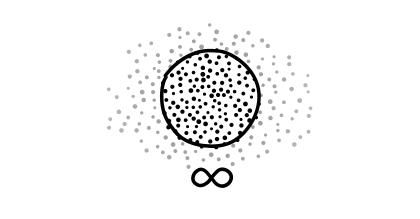
Huge numbers or sizes give us access to the idea of absolute greatness.
This is what makes us feel a strange mix of displeasure and pleasure. We are disturbed by the enormity of what we see and at the same time delighted by the idea of something absolutely great.
Fearful without fear
The pleasure to watch a storm through the window of a cosy safe living room evokes a similar mix of displeasure and pleasure: We are watching something terrible–without being terrified.
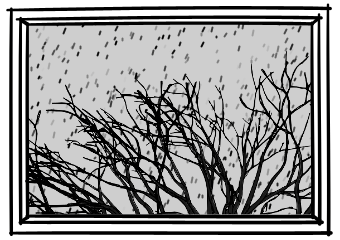
This second sort of sublime feeling is caused not by size, but by power: We are overpowered by violent forces. If we were to stand in that storm we would be terrified, and quite rightly so! But since we find ourselves safe behind a double glazed window with a warm cup of tea in our hands we are not scared at all. Kant says that this pleasant shiver awakes in us a calling to defy overwhelming power without fear. We get a glimpse of how it can feel when our spirit rises above the inescapable forces of nature.

Both sentiments, the overwhelming sense of absolute greatness and our courage in the face of merciless power, animate our moral disposition.
Just like beauty is connected to knowledge, the sublime is related to our moral sense of good and bad.
Between truth and moral
The basis of our strive for truth and goodness are judgements. And our ability to judge can be overwhelmed. This is true for our experience of nature but especially for works of art.
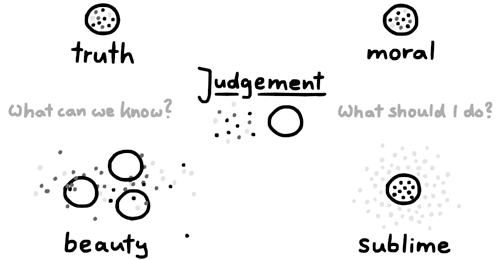
When we can’t put our perceptions into simple terms this can lead us to beauty. When we are overpowered by large numbers or forces this can remind us of a better self. However, there’s no guarantee for this to happen, cautions Kant. We all have a disposition for beauty and the sublime but we also need to cultivate our taste and character to experience it.
If you want to dig deeper
- Immanuel Kant, Critique of Judgement
- Roger Scruton, Kant: A Very Short Introduction
- Immanuel Kant, Kritik der Urteilskraft (German)
Before you go
If you enjoyed this article, then subscribe to my mailing list to receive more animated stories!



1 comments On Immanuel Kant — What is Beauty?
Wonderfully articulated. One point to add, Beauty is not just in enormous sizes that defy our rational thinking, it is also in very tiny and miniscule. Just as the microcosm is beyond our limited capacity of understanding the microcosm too defies our limited perception. Our mind always tries to measure, it is always trying to judge and break it down to “understand” phenomenon. When the mind is unable to or for that matter, when the mind drops this need to “understand” the appreciation of beauty emerges.